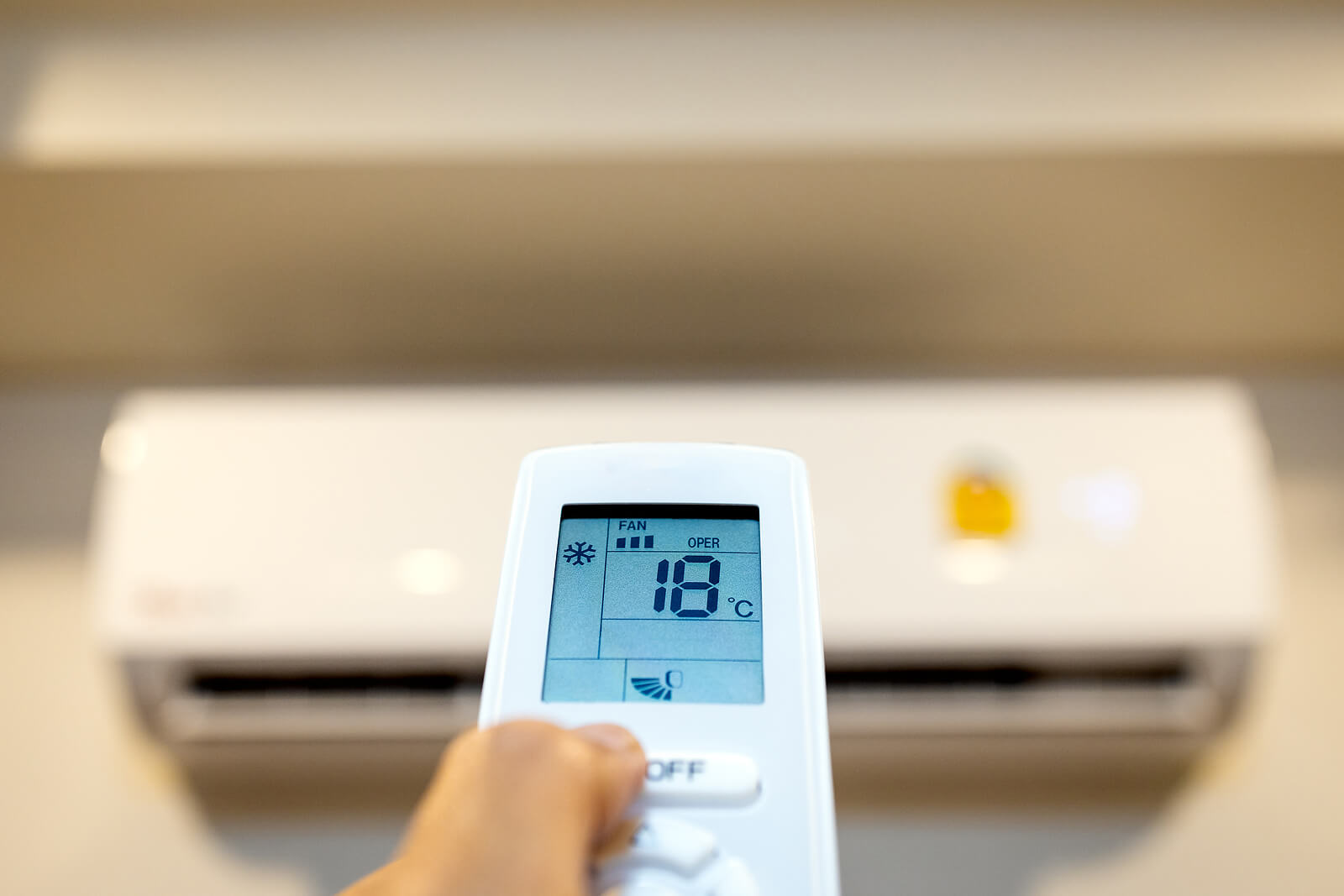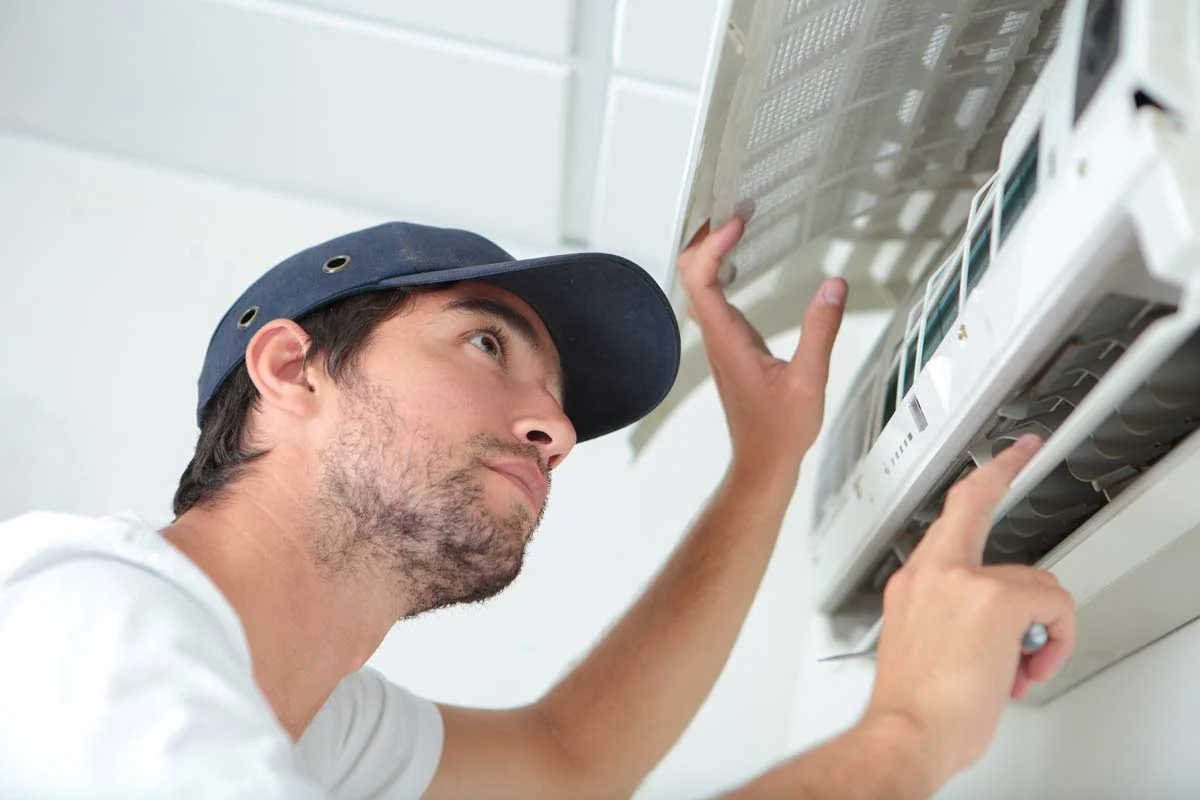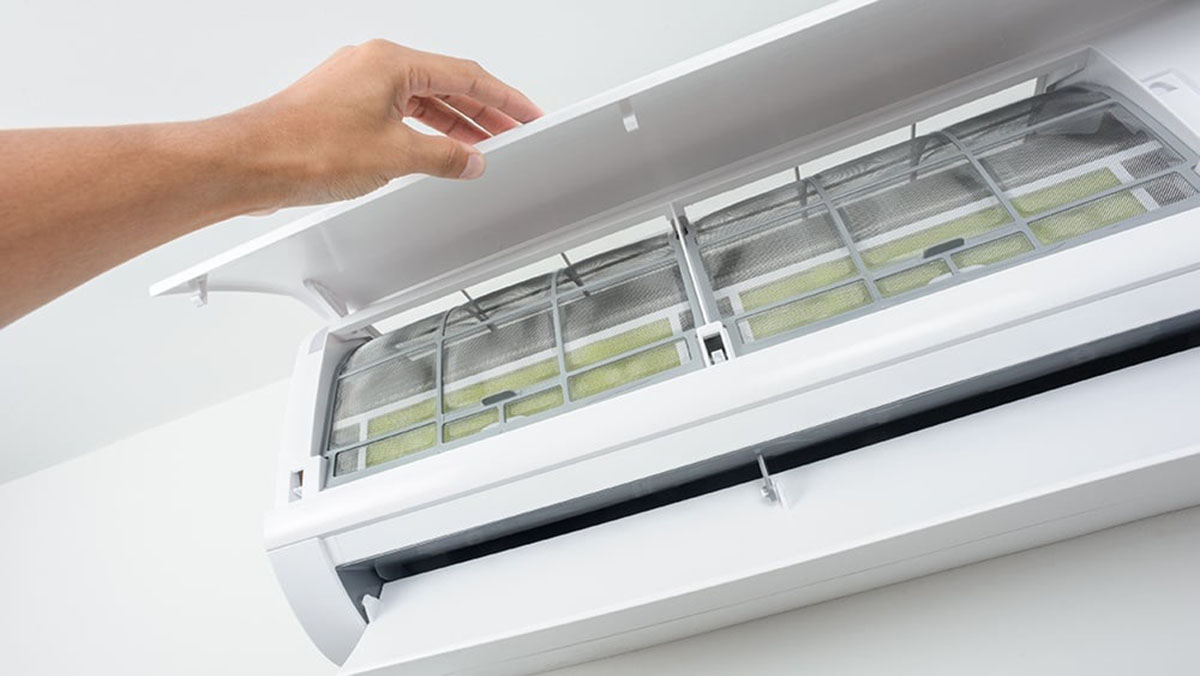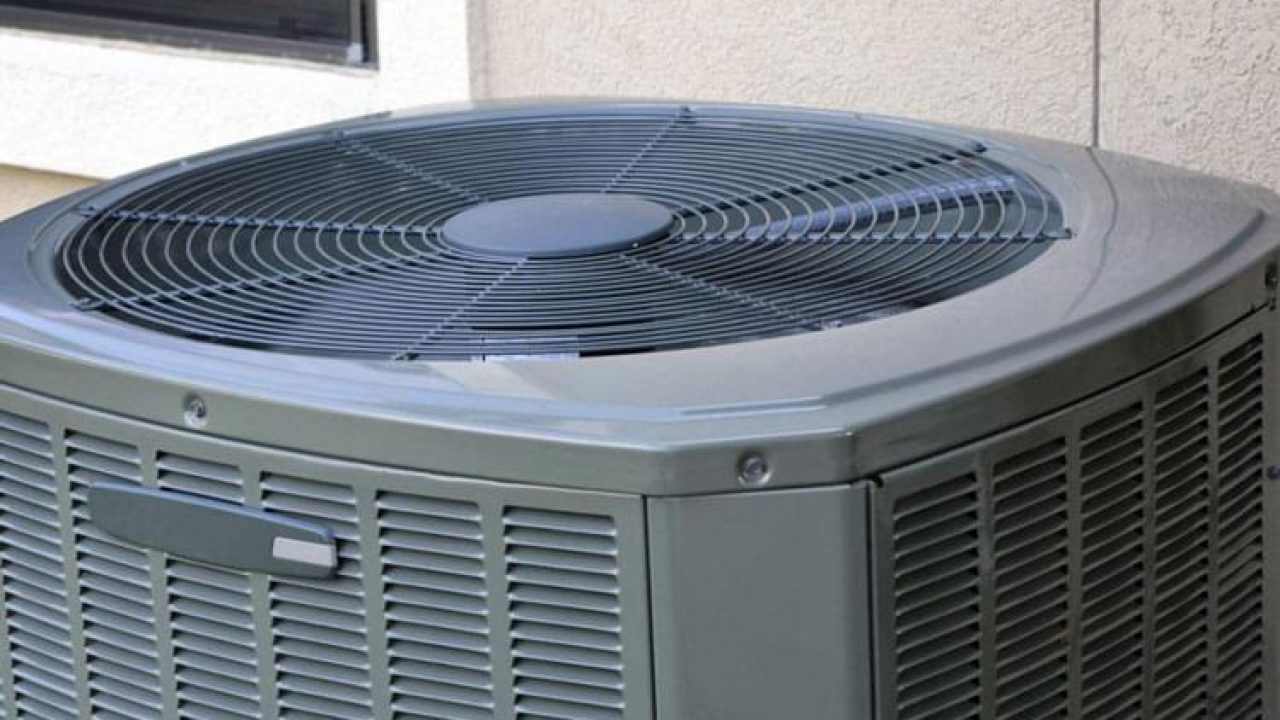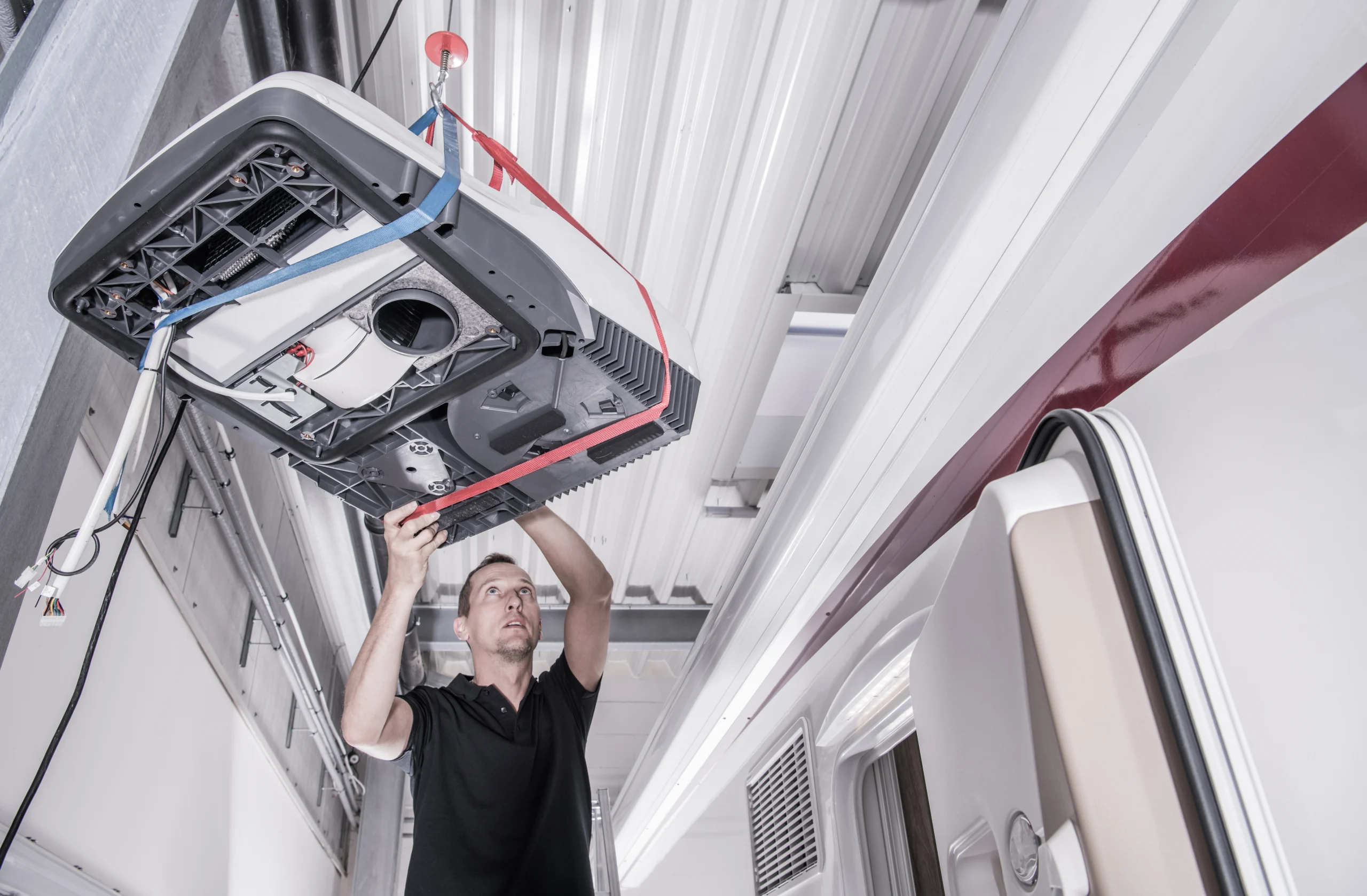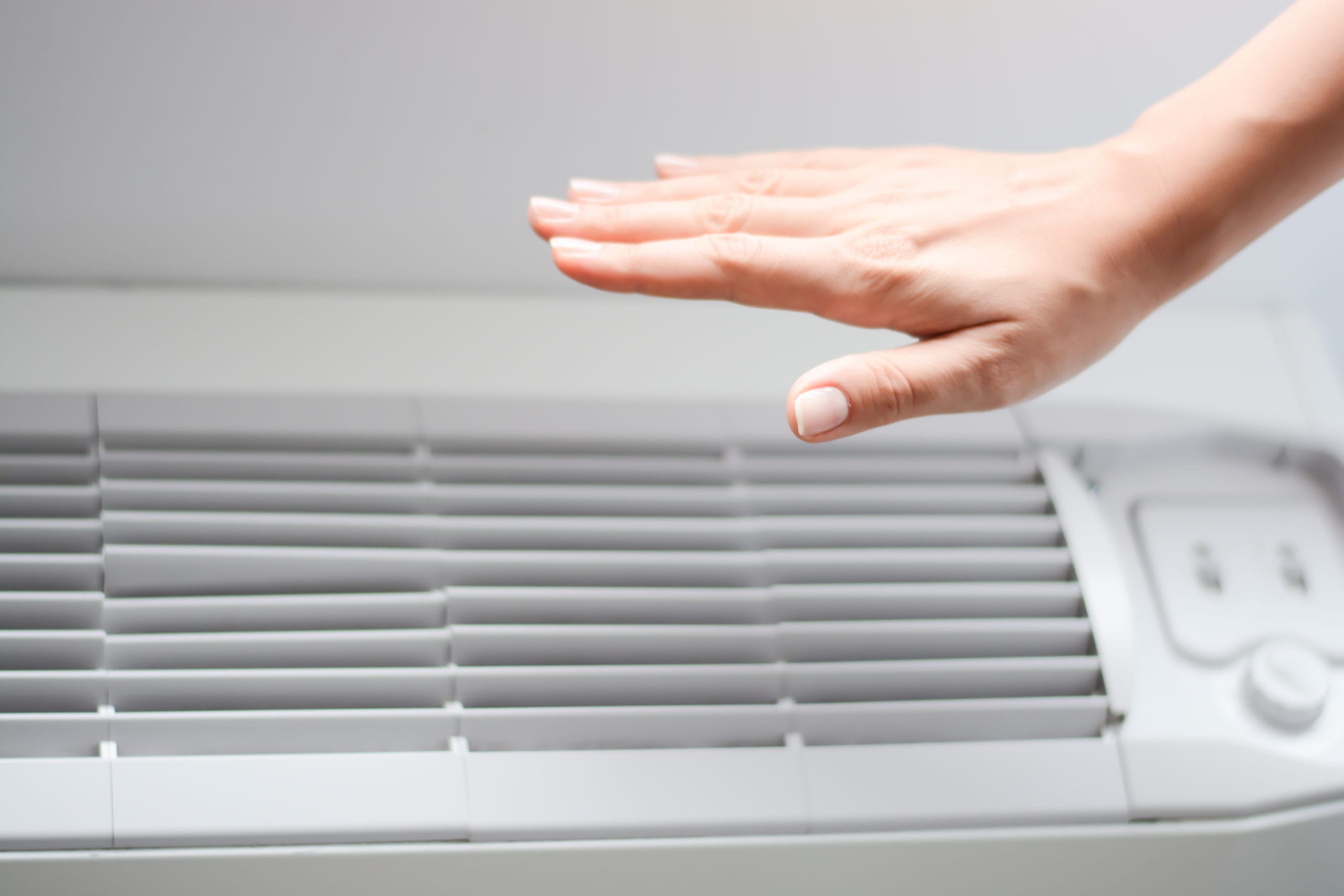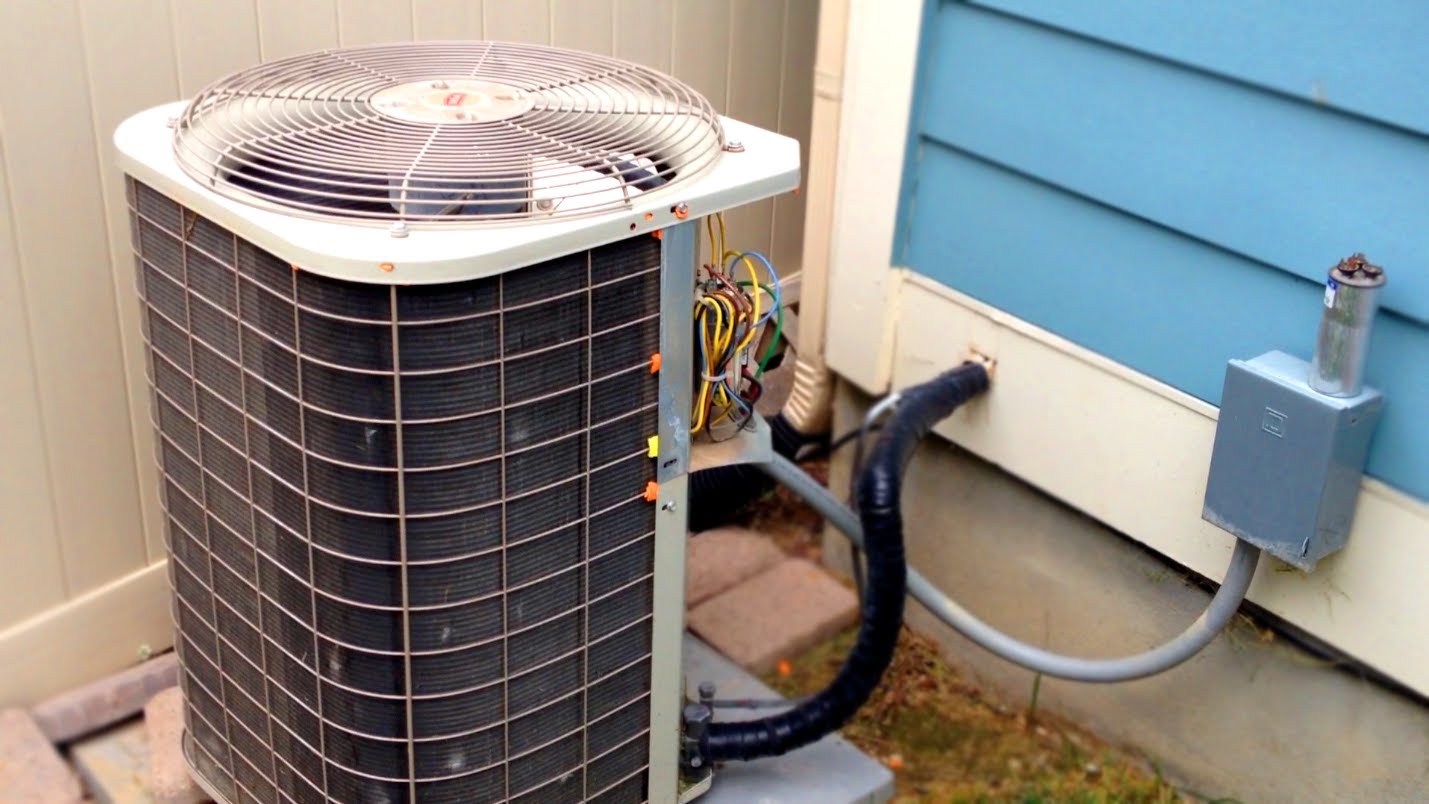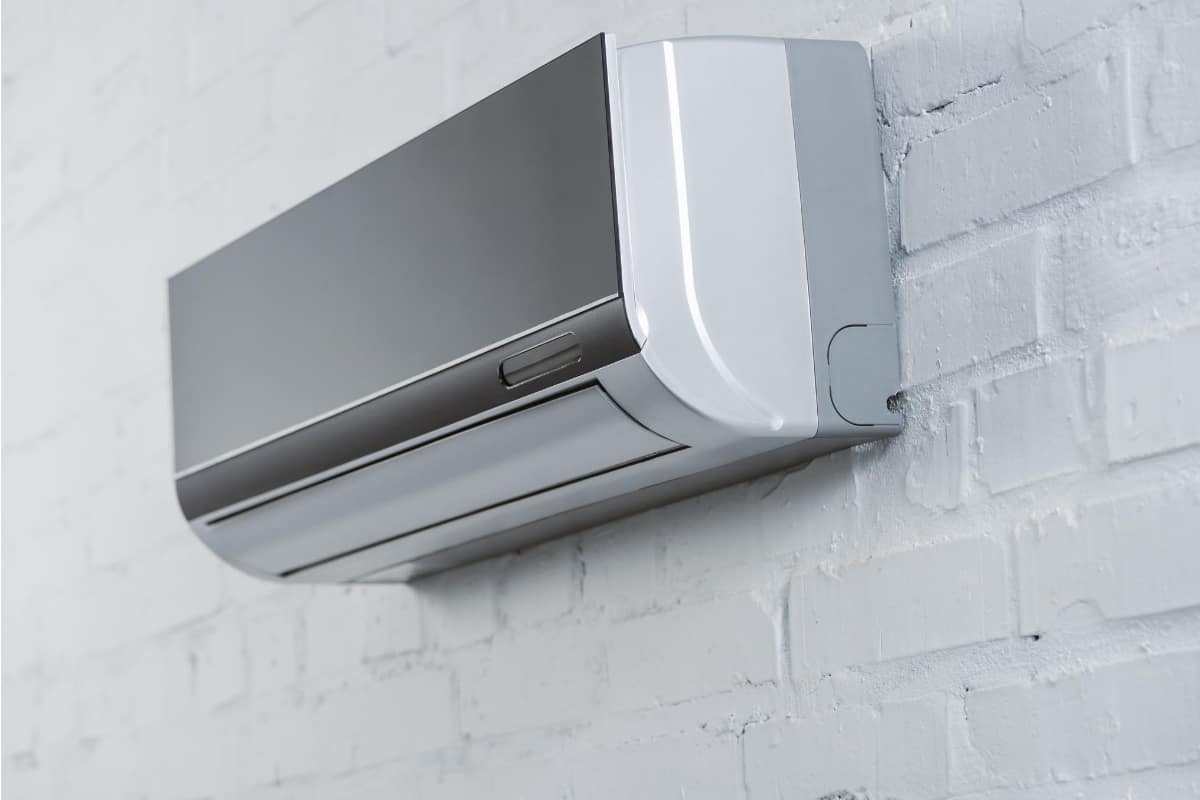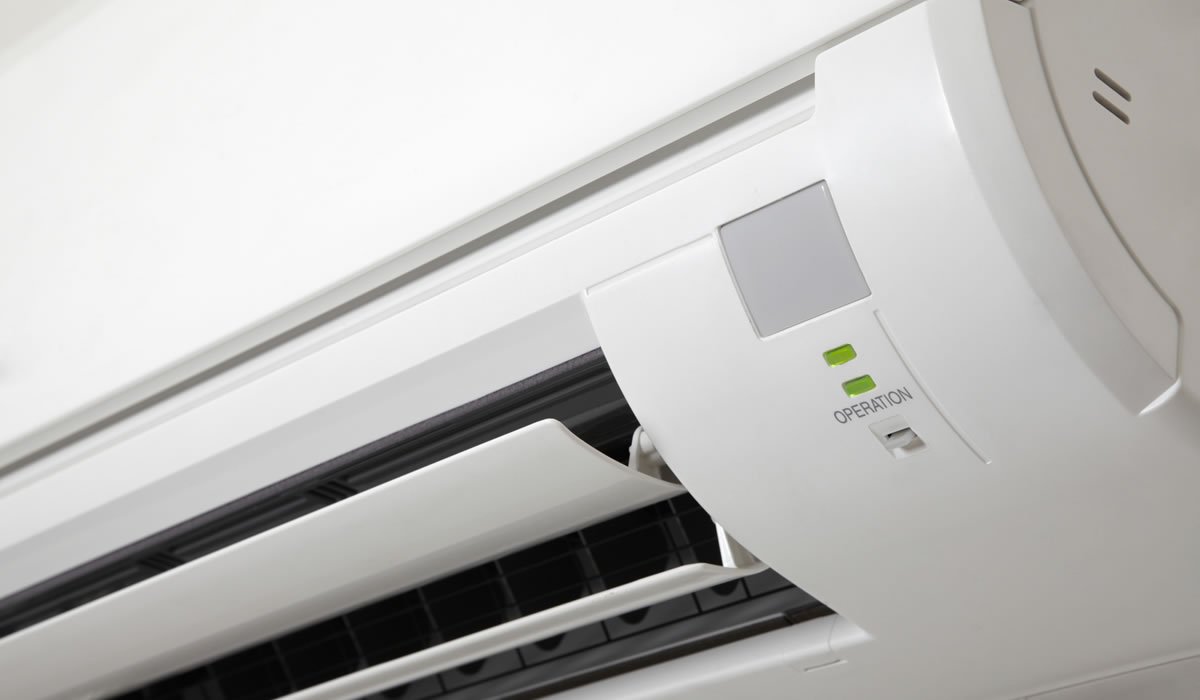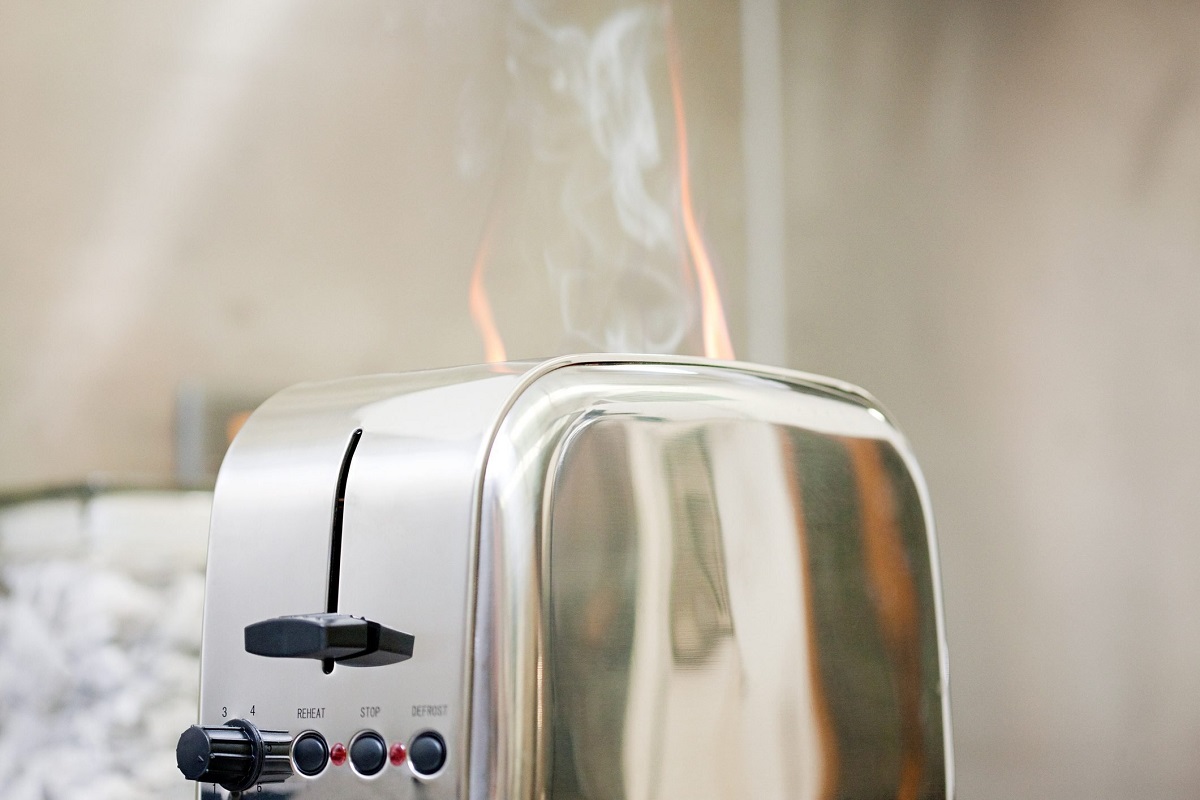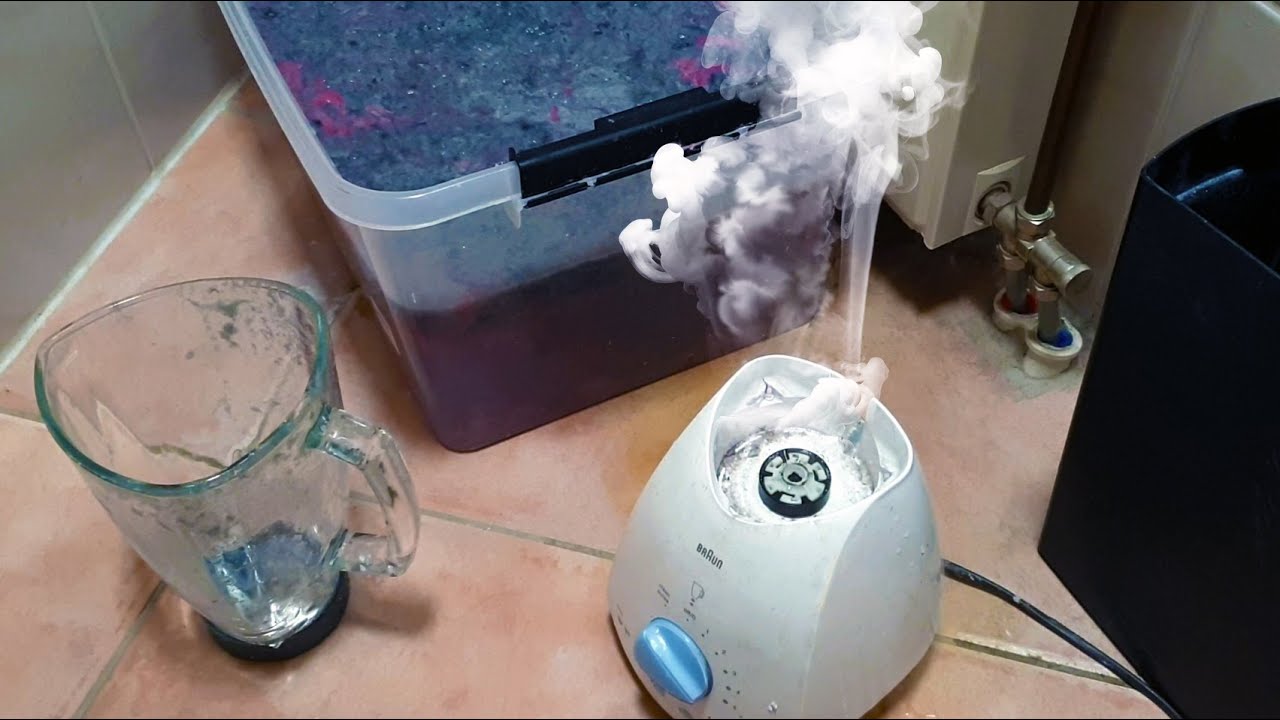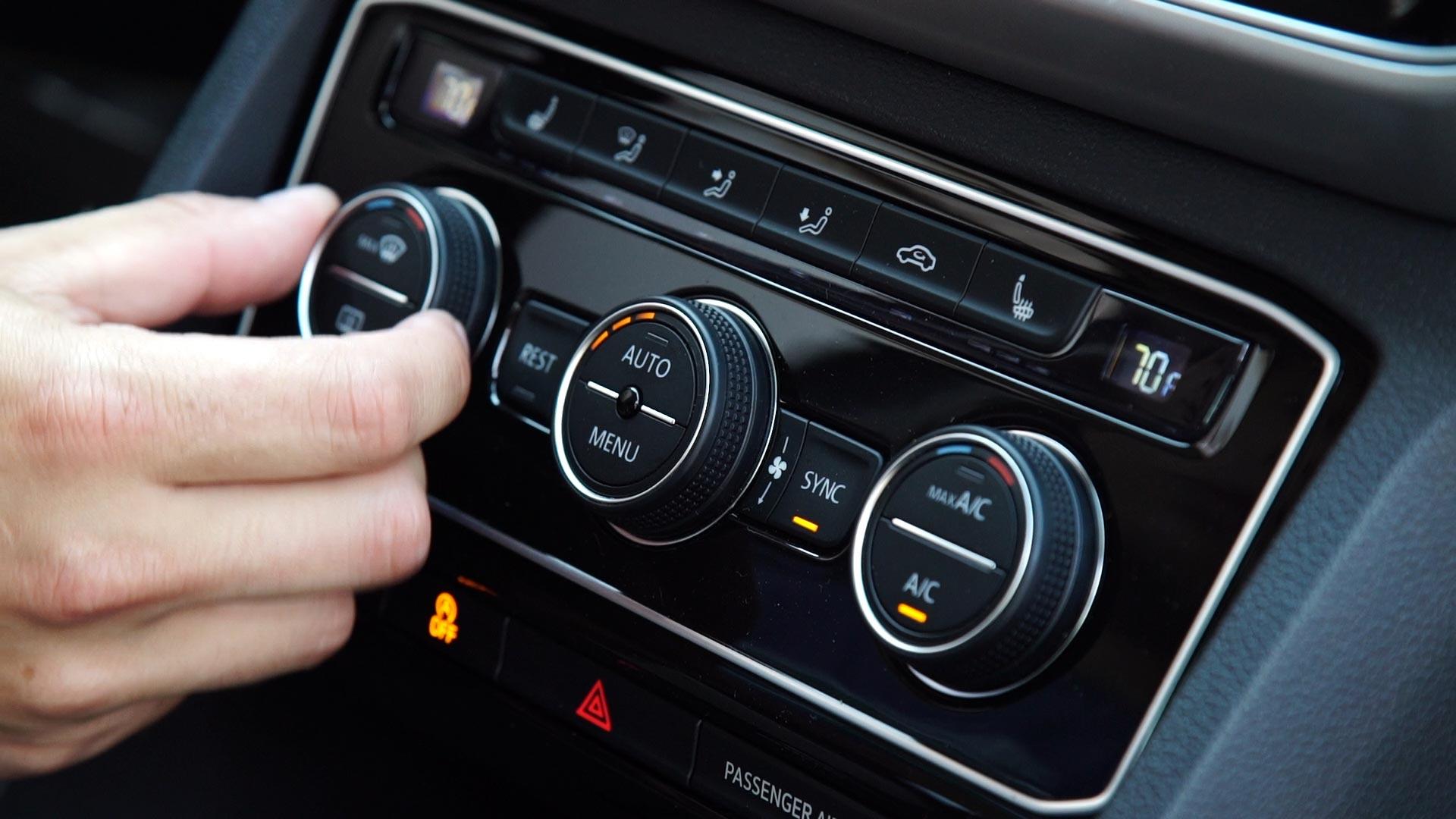Home>Home Maintenance>Why Is My Air Conditioner Smoking
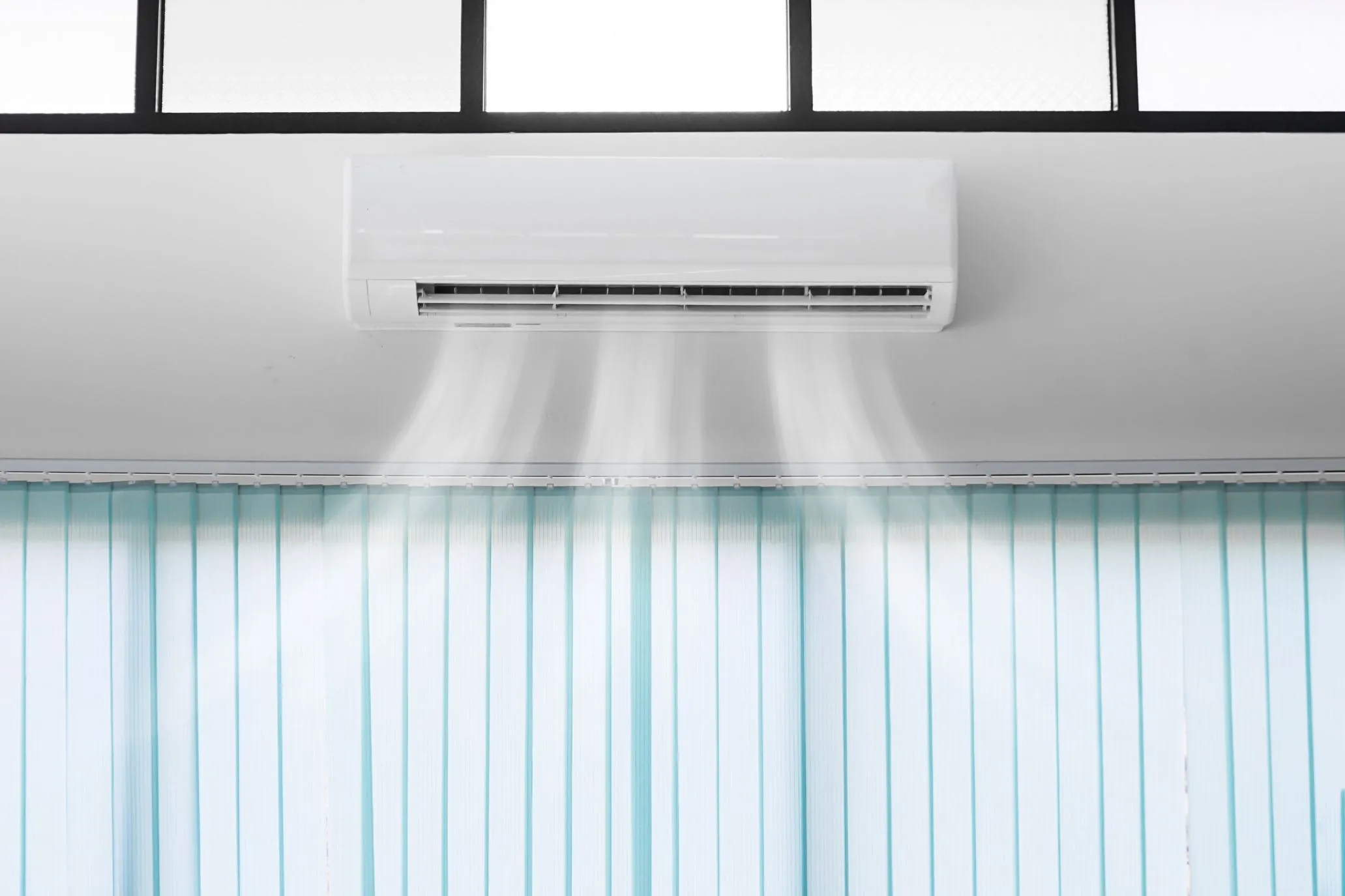

Home Maintenance
Why Is My Air Conditioner Smoking
Modified: October 21, 2024
Discover why your air conditioner is smoking and how to prevent it with proper home maintenance. Keep your home cool and safe.
(Many of the links in this article redirect to a specific reviewed product. Your purchase of these products through affiliate links helps to generate commission for Storables.com, at no extra cost. Learn more)
Introduction
Having an air conditioner is a wonderful convenience, especially during hot summer months. However, if you notice smoke or a burning smell coming from your air conditioner, it’s important to address the issue immediately to prevent further damage and ensure the safety of your home. While it may be alarming to see smoke coming from your AC unit, understanding the potential causes can help you troubleshoot the problem and take appropriate action.
There are several common reasons why your air conditioner may be smoking. It could be due to overheating of the components, blocked or dirty air filters, refrigerant leaks, electrical issues, or even the accumulation of dust or debris that can create a burning smell. Each of these issues requires different solutions, and addressing them promptly can prevent further damage and potential fire hazards.
In this article, we will explore in more detail the possible causes of smoke in air conditioners and provide practical tips on how to deal with a smoking air conditioner. By understanding these potential issues and taking the necessary steps to fix them, you can ensure the optimal performance and longevity of your air conditioning unit.
Key Takeaways:
- Address smoke from your air conditioner immediately to prevent damage and fire hazards. Regular maintenance and professional inspections can prevent issues and ensure safe operation.
- Turn off the unit, contact a professional, and implement preventative measures to deal with a smoking air conditioner. Regular maintenance is key to preventing future problems.
Read more: Why Is My Air Fryer Smoking
Causes of Smoke in Air Conditioners
When you notice smoke coming from your air conditioner, it is crucial to identify the underlying cause to address the problem effectively. Understanding the potential causes will help you troubleshoot the issue and decide whether you can fix it yourself or if you need to call in a professional technician. Here are some common causes of smoke in air conditioners:
- Overheating of Air Conditioner Components: One of the main reasons for smoke in air conditioners is the overheating of components. This can occur due to various reasons, such as a malfunctioning motor, faulty wiring, or a blocked air vent. When the AC unit works harder than it should, it can create excess heat, leading to smoke and potential damage. Regular maintenance and inspections can help prevent overheating issues.
- Blocked or Dirty Air Filters: Air filters play a crucial role in maintaining the efficiency of your air conditioner. Over time, these filters can become clogged with dirt, dust, and other debris, obstructing proper air flow. When the air cannot circulate freely, it puts strain on the system, leading to overheating and smoke. Regularly cleaning or replacing the air filters can prevent this issue from occurring.
- Refrigerant Leaks: Refrigerant is a vital component of an air conditioning system, and any leaks can cause serious problems. If there is a refrigerant leak, it can damage the compressor and other parts of the unit, leading to smoke. It’s important to address refrigerant leaks promptly, as they not only impact the performance of the AC but can also pose health risks.
- Electrical Issues: Faulty or damaged wiring can cause a build-up of heat and potentially create smoke in your air conditioner. It’s essential to have a professional inspect the electrical connections to ensure they are in proper working condition. Regular maintenance can help detect and rectify any electrical issues before they escalate into more significant problems.
- Burning Smell from Accumulated Dust or Debris: Over time, dust and debris can accumulate within the air conditioner unit. When the unit is running, the accumulated particles can get heated up and emit a burning smell, which might be mistaken for smoke. Regular cleaning and maintenance can help prevent the build-up of dust and debris, ensuring the efficient operation of the AC unit.
Identifying the specific cause of smoke in your air conditioner will enable you to take appropriate action to resolve the issue. In the next section, we will explore the potential fire hazards associated with a smoking air conditioner and provide practical steps to deal with the problem effectively.
Overheating of Air Conditioner Components
One of the common causes of smoke in air conditioners is the overheating of components. The air conditioner works by removing heat from the air and transferring it outside, creating a cool and comfortable indoor environment. However, several factors can contribute to the overheating of these components, leading to smoke and potential damage.
There are a few key components in an air conditioner that are prone to overheating:
- Compressor: The compressor is responsible for compressing the refrigerant and transferring it through the system. When the compressor becomes overheated, it can cause smoke and eventually lead to compressor failure. The compressor can overheat due to electrical issues, low refrigerant levels, or blocked airflow.
- Motors: Air conditioners have various motors that operate different parts of the system, such as the blower motor and fan motor. These motors generate heat during operation, and if they are faulty or worn out, they may overheat and emit smoke. Proper lubrication and regular maintenance can help reduce the chances of motor overheating.
- Wiring and Electrical Connections: Faulty wiring or loose electrical connections can cause resistance, which generates heat. Over time, this can lead to overheating of the electrical components and potentially result in smoke. It is crucial to have a professional inspect the wiring and connections to identify any issues and rectify them promptly.
- Blocked Air Vents: Air conditioners require proper airflow to function effectively. If the air vents or ducts are blocked or obstructed, the air cannot circulate freely, causing the system to work harder and generate excess heat. This can lead to the overheating of various components and result in smoke. Regularly cleaning and maintaining the air vents can prevent this issue.
To prevent overheating of air conditioner components, regular maintenance is essential. Here are a few maintenance tips:
- Clean or replace air filters regularly to ensure proper airflow.
- Keep the outdoor condenser unit free from debris and vegetation to ensure adequate ventilation.
- Have a professional inspect and lubricate motors to reduce friction and heat generation.
- Check and tighten electrical connections to prevent resistance and heat build-up.
- Ensure proper insulation around wiring to prevent overheating.
If you notice smoke coming from your air conditioner due to component overheating, it’s important to turn off the system immediately and contact a professional technician. They will be able to diagnose the specific cause of overheating and take appropriate measures to resolve the issue, preventing further damage to your air conditioner.
Blocked or Dirty Air Filters
Air filters play a crucial role in the proper functioning of an air conditioning system. They are responsible for filtering out dust, dirt, pollen, and other airborne particles, ensuring clean and healthy indoor air quality. However, over time, air filters can become clogged and dirty, leading to various issues, including smoke in the air conditioner.
When air filters are blocked or dirty, it restricts the airflow through the system. As a result, the air conditioner needs to work harder to push the air through the clogged filters. This increased strain on the system can lead to overheating of various components, causing smoke and potential damage.
There are a few common reasons why air filters become blocked or dirty:
- Normal Accumulation: As the air circulates through your home, it carries dust, pet dander, and other particles that can settle on the air filters. Over time, this accumulation can restrict airflow and require the filters to be cleaned or replaced.
- Poor Air Quality: Homes located in areas with high pollution or construction nearby may experience faster build-up of dirt and debris on the air filters. Similarly, homes with pets may have more pet hair and dander accumulating on the filters. Regularly checking and cleaning these filters is especially important in such cases.
- Neglected Maintenance: Many homeowners overlook the importance of regular air filter maintenance. When air filters are not cleaned or replaced as recommended by the manufacturer, they can become excessively dirty and severely restrict airflow.
To prevent issues related to blocked or dirty air filters:
- Check the air filters regularly and clean or replace them according to the manufacturer’s instructions.
- If you have pets or live in a high-pollution area, consider more frequent inspections and cleanings.
- Ensure proper installation of the air filters, using the correct size and positioning them in the correct direction of airflow.
- Consider using higher quality air filters or invest in air purification systems to improve indoor air quality and reduce the build-up of debris on the filters.
If you notice smoke coming from your air conditioner, check the air filters first. If they are dirty or blocked, turn off the system and clean or replace the filters. Afterward, monitor the unit to see if the smoke dissipates. If the problem persists or if you are uncertain about how to proceed, it is advisable to seek assistance from a professional air conditioning technician.
By maintaining clean and unobstructed air filters, you can ensure proper airflow in your air conditioning system, improve energy efficiency, and prevent potential issues such as smoke from occurring.
Refrigerant Leaks
Refrigerant is a crucial component in an air conditioning system. It is responsible for absorbing heat from the air and releasing it outside, allowing the air conditioner to cool the indoor environment. However, refrigerant leaks can occur, leading to several issues, including smoke in the air conditioner.
A refrigerant leak can happen due to various reasons, such as:
- Wear and Tear: Over time, the refrigerant lines and connections can deteriorate or develop small cracks, leading to leaks.
- Corrosion: Exposure to moisture or chemicals can cause corrosion in the refrigerant lines, resulting in leaks.
- Improper Installation: If the air conditioning system was not installed correctly, it may have loose fittings or damaged connections that can lead to refrigerant leaks.
- Physical Damage: Accidental punctures or damage to the refrigerant lines can cause leaks.
When a refrigerant leak occurs, it not only affects the cooling efficiency of the air conditioner but can also cause smoke to emit from the unit. As the refrigerant leaks, it can come into contact with hot components, leading to the production of smoke and potential damage to the air conditioner.
It is important to address refrigerant leaks promptly for the following reasons:
- Performance: A refrigerant leak can significantly impact the cooling performance of the air conditioner, making it less efficient in cooling the indoor environment.
- Health Concerns: Refrigerant leaks can release harmful chemicals into the air, posing health risks to occupants of the space. This is especially true for older air conditioning systems that use refrigerants such as R-22, which are being phased out due to their environmental impact.
- Environmental Impact: Many refrigerants contribute to ozone depletion or have a high global warming potential. Addressing refrigerant leaks helps reduce the release of these harmful substances into the environment.
- System Damage: Continuing to run the air conditioner with a refrigerant leak can lead to severe damage to the compressor and other components, resulting in costly repairs or even the need for a complete system replacement.
If you suspect a refrigerant leak, look for signs such as a decrease in cooling performance, hissing noises near the unit, or an oily residue around the air conditioner. If you notice any of these signs or detect smoke coming from the unit, it is crucial to turn off the air conditioner and contact a professional technician. They will be able to diagnose the leak, repair the damaged lines or connections, and recharge the refrigerant to restore the optimal performance of your air conditioner.
Regular maintenance and inspections by professionals can also help detect potential refrigerant leaks early on, allowing for timely repair and preventing further issues.
Read more: Why Is My Air Conditioner Surging
Electrical Issues
Electrical issues can contribute to smoke in air conditioners and should be taken seriously due to the potential fire hazards involved. Faulty or damaged wiring, loose electrical connections, or overloaded circuits can all lead to overheating and the emission of smoke from the unit.
Here are some common electrical issues that can cause smoke in air conditioners:
- Faulty Wiring: Incorrect or deteriorated wiring can lead to resistance, which generates heat. Over time, the heat can build up and cause smoke. Faulty wiring is often caused by poor installation or aging of the electrical system.
- Loose Electrical Connections: Loose connections can cause resistance, leading to heat buildup and the potential for smoke. These connections can come loose due to vibrations or improper installation. It is important to have regular inspections to identify and correct any loose connections.
- Overloaded Circuits: Overloading occurs when there is excessive demand on a circuit, causing the wires to overheat. This can happen when multiple appliances, including the air conditioner, are connected to the same circuit. It is essential to distribute the load evenly across circuits and avoid overloading them.
- Power Surges: Power surges, whether from lightning strikes or electrical issues within the home, can damage the electrical components of an air conditioner. These damages can lead to smoke when the unit is powered on.
If you notice smoke coming from your air conditioner due to electrical issues, it is crucial to turn off the unit immediately and take the following steps:
- Disconnect the Power: Turn off the air conditioner by disconnecting the power at the circuit breaker or unplugging it from the electrical outlet. This will help prevent any further damage or potential fire hazards.
- Contact a Professional: It is important to call a qualified technician or electrician to inspect and repair the electrical issues. Attempting to fix electrical problems yourself can be dangerous and potentially worsen the situation.
- Regular Maintenance: To prevent electrical issues in the future, schedule regular maintenance for your air conditioning system. Professional technicians can identify and address any potential wiring or electrical connection problems before they lead to smoke or other issues.
Remember, electrical issues can pose serious safety risks, so it is essential to seek professional help to resolve them. Regular inspections and maintenance can help prevent electrical problems from occurring and ensure the safe and efficient operation of your air conditioner.
If your air conditioner is smoking, turn it off immediately and contact a professional technician to inspect and repair the issue. Continuing to run the unit could cause further damage and pose a safety risk.
Burning Smell from Accumulated Dust or Debris
If you notice a burning smell coming from your air conditioner, it may not necessarily be smoke. Often, this odor is caused by accumulated dust or debris within the unit. Over time, dust, pet hair, and other particles can settle on the surfaces and components of the air conditioner. When the unit is running, these accumulated particles can heat up and emit a burning smell, which might be mistaken for smoke.
This burning smell from accumulated dust or debris is more common when the air conditioner has been inactive for a while or during the first few uses when turning it on after a period of non-use. It is a result of the heat interacting with the built-up dirt or debris within the system.
Here are a few steps you can take to address the issue:
- Clean the Air Vents and Ducts: Inspect the air vents and ducts for any dust or debris accumulation. Use a vacuum or a damp cloth to clean the vents and remove any visible dirt or buildup.
- Replace or Clean the Air Filters: Dirty or clogged air filters can contribute to the burning smell. Remove the air filters and check if they are dirty. Clean or replace the filters as necessary to ensure proper airflow and reduce the accumulation of dust or debris.
- Schedule Professional Maintenance: If the burning smell persists even after cleaning the vents and replacing the filters, it is recommended to schedule a professional maintenance service. A technician will be able to thoroughly clean the internal components of the air conditioner, ensuring the removal of any accumulated dust or debris.
Taking these steps will help eliminate the burning smell and improve the overall air quality produced by your air conditioner.
Regular maintenance and cleaning of your air conditioner can significantly prevent the accumulation of dust and debris. By keeping the unit clean and free from obstructions, you can improve the efficiency of the system and prevent potential issues associated with burning smells.
It’s important to note that if the burning smell persists or you notice any other signs of smoke or electrical issues, it is recommended to turn off the air conditioner and contact a professional technician. They will be able to assess the situation and address any potential problems to ensure the safe operation of your air conditioning system.
Potential Fire Hazards
When it comes to smoke in air conditioners, it’s crucial to be aware of the potential fire hazards associated with the issue. While not all cases of smoke indicate an immediate fire danger, it’s essential to take precautions and address the problem promptly to prevent any potential risks.
Here are some potential fire hazards related to smoke in air conditioners:
- Electrical Fires: Smoke resulting from electrical issues, such as faulty wiring or loose connections, can pose a significant fire hazard. If the electrical components of the air conditioner overheat and emit smoke, there is a risk of an electrical fire. It is crucial to turn off the unit immediately and seek professional assistance to address the underlying electrical problems.
- Ignition of Accumulated Debris: The burning smell from accumulated dust or debris within the air conditioner can potentially lead to the ignition of these materials. If the heat generated by the system is not properly dissipated, a fire can start within the unit. Regular cleaning and maintenance, including the removal of any accumulated debris, are important in preventing this potential fire hazard.
- Refrigerant Leak Fire Risk: Although less common, refrigerant leaks can also pose a fire hazard. Some refrigerants, such as R-22, are flammable, and if a leak occurs and the refrigerant comes into contact with a heat source, it can ignite. This is another reason why it is important to address refrigerant leaks promptly and seek professional assistance for repairs.
To mitigate the fire hazards associated with smoke in air conditioners, here are some preventive measures you can take:
- Regular Maintenance and Inspections: Schedule regular maintenance for your air conditioner to identify and address any potential issues before they escalate. Professional technicians can inspect the unit, clean components, check for electrical problems, and ensure proper functioning to prevent fire hazards.
- Promptly Address Electrical Issues: If you notice any signs of electrical problems, such as smoke or unusual odors, turn off the unit and contact a professional technician to diagnose and repair the issues. Avoid attempting to fix electrical problems yourself, as it can be dangerous and may exacerbate the situation.
- Clean and Replace Air Filters: Regularly clean or replace the air filters to ensure proper airflow and prevent the accumulation of dust or debris. This reduces the risk of a potential fire hazard caused by the ignition of accumulated materials.
- Address Refrigerant Leaks: If you suspect a refrigerant leak, turn off the air conditioner and contact a professional technician. They will be able to diagnose and repair the leak to prevent any fire hazards associated with flammable refrigerants.
By being proactive in your air conditioner maintenance and promptly addressing any smoke or potential fire hazards, you can ensure the safe and efficient operation of your cooling system while protecting your home and family from potential risks.
How to Deal with a Smoking Air Conditioner
Discovering that your air conditioner is smoking can be alarming, but it’s important to take immediate action to address the issue. Here are some steps to help you deal with a smoking air conditioner:
- Turn Off the Unit: As soon as you notice smoke coming from your air conditioner, the first and most important step is to turn off the unit. This will help prevent any further damage to the system and mitigate potential fire hazards.
- Assess the Situation: Take a moment to observe the smoke and identify any specific smells or visual indications. This information can be helpful when discussing the issue with a professional technician.
- Contact a Professional: It’s best to consult with a professional air conditioning technician to diagnose and resolve the issue. They have the expertise and tools to identify the underlying cause of the smoke and recommend appropriate solutions. Do not attempt to repair the unit yourself, as you could potentially worsen the problem or pose a safety risk.
- Document the Problem: While waiting for the technician to arrive, document any relevant details about the smoking air conditioner. This can include the date and time you noticed the smoke, any unusual sounds or odors accompanying it, and any recent changes or maintenance performed on the unit.
- Follow Professional Recommendations: Once the technician assesses the problem, they will provide recommendations for resolving the issue. This may involve repairs, parts replacement, or further inspection. Follow their recommendations to ensure the proper functioning and safety of your air conditioner.
- Implement Preventative Measures: To prevent future instances of a smoking air conditioner, take steps to maintain the system properly. This includes regular cleaning and replacement of air filters, scheduling professional maintenance at least once a year, and addressing any maintenance or repair needs promptly.
- Be Mindful of Fire Safety: While instances of smoke in air conditioners may not always lead to fires, it’s important to practice fire safety precautions. Keep flammable materials away from the air conditioner unit, have working smoke detectors installed in your home, and have a fire extinguisher readily accessible as a precautionary measure.
Dealing with a smoking air conditioner requires prompt attention and professional assistance to address the underlying cause. By following these steps and prioritizing regular maintenance, you can ensure the safety and optimal performance of your air conditioning system.
Read more: Why Is There Ice On My Air Conditioner
Regular Maintenance and Inspection
To prevent issues such as smoke in your air conditioner, regular maintenance and inspections are essential. By taking proactive measures, you can ensure the optimal performance of your unit, extend its lifespan, and minimize the risk of potential problems arising. Here are some key aspects of regular maintenance and inspection for your air conditioner:
- Cleaning or Replacing Air Filters: Air filters play a crucial role in maintaining proper airflow and preventing the accumulation of dust and debris. Regularly cleaning or replacing the air filters, typically every one to three months, can improve efficiency and prevent issues like overheating and smoke.
- Cleaning Evaporator and Condenser Coils: Over time, the evaporator coils and condenser coils can accumulate dirt and debris. Cleaning these coils helps maintain their efficiency and prevents overheating that can lead to smoke. Use a soft brush or a vacuum cleaner to remove any build-up in these components.
- Checking and Clearing Blocked Vents and Ducts: Blocked vents and ducts restrict airflow, leading to strain on the system and potential issues. Regularly check these areas for any obstructions and clean or clear them as necessary to ensure proper air circulation.
- Inspecting and Tightening Electrical Connections: Electrical connections can become loose over time, leading to potential fire hazards and other electrical issues. Regularly inspect the connections and tighten any loose wires to ensure safe and reliable operation.
- Lubricating Moving Parts: Proper lubrication of moving parts, such as fan motors and bearings, reduces friction and heat generation. This helps prevent overheating and extends the lifespan of these components. Consult the manufacturer’s guidelines for the appropriate lubrication schedule and technique.
- Checking Refrigerant Levels: Insufficient or excessive refrigerant levels can impact the performance of your air conditioner and potentially lead to issues like smoke. Have a professional technician inspect the refrigerant levels and recharge the system if necessary.
- Examining Condensate Drainage: Ensure that the condensate drain is clear and free from blockages. A clogged drain can cause water backup, leading to leaks and potential damage to your unit. Regularly check the drain and clear any debris that may have accumulated.
- Scheduling Professional Maintenance: While there are maintenance tasks you can perform yourself, it’s also important to schedule professional maintenance at least once a year. A trained technician can perform a comprehensive inspection, identify any issues, and provide necessary repairs or recommendations to keep your air conditioner in top condition.
By making regular maintenance and inspection a priority, you can detect and address potential problems before they escalate into more significant issues. This helps ensure the performance, efficiency, and safety of your air conditioning system. Remember to follow the manufacturer’s guidelines and consult with a professional technician for any specific maintenance requirements and recommendations for your particular air conditioner model.
Conclusion
Dealing with a smoking air conditioner can be worrisome, but understanding the potential causes and taking appropriate action can help you resolve the issue and prevent further damage or safety hazards. Addressing the underlying problem promptly is crucial to ensure the optimal performance and longevity of your air conditioning unit.
Throughout this article, we have explored common causes of smoke in air conditioners, including overheating of components, blocked or dirty air filters, refrigerant leaks, electrical issues, and burning smell from accumulated dust or debris. By identifying the specific cause, you can take the necessary steps to rectify the problem.
Regular maintenance and inspection play a vital role in preventing issues with your air conditioner. Keeping the air filters clean or replacing them regularly, cleaning the evaporator and condenser coils, checking and clearing blocked vents and ducts, inspecting and tightening electrical connections, lubricating moving parts, checking refrigerant levels, and examining condensate drainage are all important tasks in maintaining an efficient and safe air conditioning system.
In case of a smoking air conditioner, it is crucial to turn off the unit, assess the situation, and contact a professional technician who can diagnose and resolve the issue. Following their recommendations and implementing preventative measures can help prevent future instances of smoke and potential fire hazards.
Remember, the safety of your home and the well-being of your air conditioning system rely on regular maintenance and prompt attention to any issues. By taking proactive steps, you can enjoy efficient cooling and peace of mind during hot summer months.
Keep in mind that while this article provides general guidance, it is always advisable to consult with a professional technician for specific advice and assistance in managing and resolving issues with your air conditioner.
Frequently Asked Questions about Why Is My Air Conditioner Smoking
Was this page helpful?
At Storables.com, we guarantee accurate and reliable information. Our content, validated by Expert Board Contributors, is crafted following stringent Editorial Policies. We're committed to providing you with well-researched, expert-backed insights for all your informational needs.
